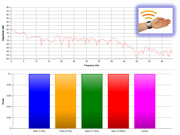
Feb
Data Science Team: Build or Rent?
Eric Layland 0 comments artificial intelligence, Burning Questions
Building an Efficient & Effective Data Science Team
There are numerous reasons why a company may decide to develop a data science team in their organization. The skills an in-house team brings can enable organizations to turn raw data into strategic assets. Their skills lead to better use of data assets including understanding customer behavior, error detection, automation of repetitive tasks, and overall more sophisticated decision support. A data-driven organization can benefit and gain a competitive edge.
However, building an effective and efficient data science team is not as simple as adding new hires. Before we can discuss whether to rent or build a team of experts, it’s essential to understand the roles typically needed to fully staff a data science team.
The included salary estimates do not include benefits. The figures are an average of the latest available data from Salary.com, PayScale and ZipRecruiter and reflect US labor markets.
1. Data Scientist
A data scientist is an expert in the management and analysis of data. Their roles include readying data for use (ETL or extraction, transform and load), merging data sources, creating visualizations, building advanced analytical models, participating in software development, work with unstructured data and more. With the emergence of artificial intelligence, they should be versed in AI technologies such as machine learning, deep learning, natural language processing (NLP), and machine vision. Ideally they are capable of communicating findings and insights to company management and team members.
Salary range: $70,000 to $150,000
2. Data Engineer
Data engineers make all the appropriate data available and accessible for data science efforts. They work by developing, designing, and coding data-focused applications. Note that their role also helps ensure consistency in the datasets. It can be argued that a data engineer is more focused on technical aspects than a data scientist, but they are closely related. Key areas of expertise include but are not limited to: programming (Python, R, Java, Scala, Hive, etc.), data warehousing, database management, analytics/BI tools, cloud/on-premise data storage, containerization, governance and security of data, and more. Of particular value is domain expertise that supports the mission of the organization.
Salary range: $75,000 to $140,000
3. Data Architect
They maintain and design the architecture of data science facilities and applications. Their role is to manage and create relevant data storage systems and data models. Merging large amounts of data alongside data engineers is also part of their job description. They lead designing the processes and systems needed to turn data into valuable insights. Duties include defining how data will be stored, accessed, consumed, integrated and managed by different data stakeholders.
Salary range: $100,000 to $185,000
4. Data Science Developer
The work of designing, developing, and coding data intensive applications is the domain of the data science developers. Their work helps support the business or scientific processes within the organization. You also get to deploy models with their help. Specific skill sets can overlap with data science engineers but the focus is on supporting or building applications that use the inputs of data scientists, data architects, engineers and product owners.
Salary range: $80,000 to $150,000
5. Technical Product Manager
The product manager is the individual who owns decisions for which functionalities and features to build. They are the central point of the entire project. Their role includes prioritizing what gets done and ensuring that every work item is properly defined. They also develop the product lifecycle, support needs and features roadmap. The role may not always live within the Data Science team, but for the purposes of this overview, we’re assuming their focus is on technical products that make extensive use of data to deliver value to users whether internal or external to the organization.
Salary range: $105,000 to $165,000
6. Data/Business Analyst
They work to analyze a massive variety of data to extract credible information about service, system, or organization performance. A data/business analyst will present this information in an actionable form. Their role is to shape a problem that the data scientist can explore. Some analysts focus on the data and typically have roles that include supporting data ETL, analyzing performance data, acquisition of data, and presenting data for consumption. The business analyst on the other hand focuses more on defining the business case and requirements for data intensive projects. They are more likely to bring domain expertise and work with stakeholders to oversee application development.
Salary range: $50,000 to $110,000
7. Director/Head of Data Science
This role is placed lower because there are fewer organizations that have in-house data science teams that are sufficiently large to warrant such a position. These roles are often in mature or very data intensive organizations. The individual will have years of technical experience coupled with people and process management skills. Though it’s not a requirement, past experience in academia is common. The role tends to focus on data governance, policy, security and technical direction of how data assets will strategically aid the organization. Depending on the organization, the role likely reports to the Chief Data Officer, Chief Information Officer or C-level leadership of functional business units.
Salary range: $175,000 to $260,000
8. Subject Matter Expert(s)
These experts have the know-how to apply the analytics within your organization’s context. They will help you ensure that the desired insights are relevant, accountable and actionable. They may not be a full time or dedicated member of the data science team and may join projects as needed.
Salary range: not applicable, not a full time team member
Rent or Build a Data Science Team?
It can be quite difficult for small and medium businesses to justify developing a fully staffed in-house data science team. Not only is talent in high demand resulting in very high salaries and competition for talent, there needs to be sufficient work to be done. However, the roles to be filled are numerous, thus making it somewhat challenging for most organizations. Most who choose the “build” route will start with a single individual. Likely this is a data scientist or engineer role who is able to handle a variety of other data-readiness and management tasks. As needs grow, more talent and specialty skills are added.
The benefits to building are many but there are also downsides. Key benefits include:
- They focus on the data needs of your organization
- Intellectual property developed in the process is owned by the organization
- Alignment with your organization’s strategy
Downsides to building a data science team:
- Time and money required to staff and ramp up a team
- Assessing the talent and skills can be more challenging
- Hiring to fill a data science role is expensive and time consuming
- What if the needs
Renting a data science team comes with several advantages when compared to building a team from scratch. Below are some of the benefits and perks that your organization will enjoy should you decide to rent.
- Faster ramp-up experienced data savvy personnel
- Lower cost since you’re paying for the project not a full time person
- Faster delivery and cost efficiencies from experience
- Contract requirements protect companies and set engagement deliverables
If your company is small or has limited in-house data science and analytical skills, it is far more beneficial to rent a data science team. You will save a lot of time, money, and effort by not hiring extra employees within your organization. A good consultancy will bring expertise and depth of experience in other fields that can be beneficial to your efforts. Their experience and perspective will help identify when a project is starting to go off course before it’s too late.
So What’s Best?
Obviously there is no one answer. The right choice for a given organization and situation is dependent on many factors. The importance of data, analytics and data-driven decision making is gaining prominence in the business world and beyond. A first step that mitigates risks, enhances learning, and provides good guidance is the starting point for a solid foundation you can build upon. At Cascade Strategies we can assist in developing a strategy and identifying the qualities needed in a team that will fit your organization’s needs in the near and long term.
Tags: advanced analytics, AI, ai in marketing, AI/ML, artificial intelligence, data driven marketing, market research analysis, product management, product marketing






